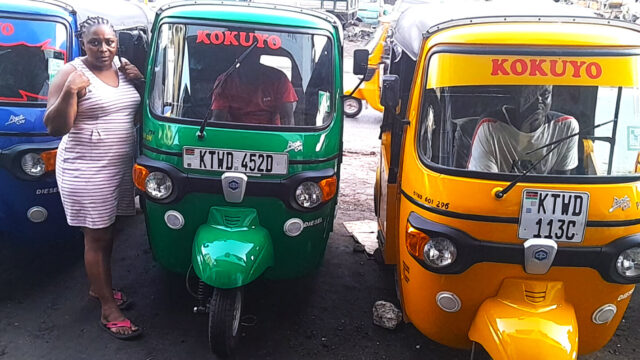How Linah Momanyi’s aspirations fueled her success in the transportation industry
One significant aspect of Linah's success is her ability to negotiate and find solutions to problems.

Linah Momanyi, a determined entrepreneur from Mombasa, Kenya, embodies the spirit of resilience and ambition. Her journey, marked by challenges and triumphs, has been significantly shaped by Watu, a leading asset financing company in Africa.
Linah’s aspirations to become a successful businesswoman were hindered by financial constraints. Like many aspiring entrepreneurs in Kenya, she needed more access to capital, making it difficult to acquire the necessary resources to start and grow her business. The tuk tuk industry, which has become a vital part of Kenya’s transportation system, was her target. However, without a tuk tuk, she couldn’t break into the industry.
Everything changed when Linah learned about Watu. Established in 2015, Watu has been a revolutionary force in providing accessible and affordable asset financing to unbanked and financially underserved individuals in Africa. Their mission is to empower entrepreneurs by granting them access to productive asset loans, thereby fostering economic empowerment and financial independence.
Linah’s first encounter with Watu was through a friend. She applied for a loan to purchase a tuk tuk. The process was straightforward, with Watu offering a flexible down payment plan and affordable weekly instalments. For instance, down payments for electric vehicles range from KES 20,000 to KES 25,000, and for internal combustion engine (ICE) bikes, the down payment varies based on the asset price. This financial structure made it possible for Linah to acquire her first tuk tuk.
With her new tuk tuk, Linah quickly established herself in the transportation industry. She not only provided transportation services but also used her tuk tuk for goods delivery, significantly increasing her income. Watu’s support didn’t stop at financing. They offered continuous customer support, asset tracking, emergency support, and even asset recovery services. These value-added services ensured that Linah’s investment was protected and her business operations ran smoothly.
Linah’s business grew as she learned the ropes of managing a transportation enterprise. She, however, faced challenges such as finding reliable drivers and dealing with vehicle maintenance, but her perseverance paid off. Linah’s experience in marketing and branding helped her attract more customers. She emphasized the importance of proper maintenance and repair of tuk tuks to ensure drivers could earn money and meet their targets.
One significant aspect of Linah’s success was her ability to negotiate and find solutions to problems. She bought old tuk tuks, repaired them from her repair shop, and managed to sell some at a profit to buy new ones on credit. Despite initially struggling with dishonest drivers, she eventually found a reliable driver, which stabilized her business. She now has 70 tuk tuks, 50 of which are fully paid for and 20 of which she has yet to clear.
Once she gives her drivers the tuk tuks in the morning, they bring them back in the evening and pay her between KSh 1000 and KSh1200, depending on what they had agreed upon with the driver. She has two tuk tuks that carry cargo; for these, she expects KSh 1500 per day from the drivers. Anything else the drivers make, they keep, as she only takes what was agreed upon.
She is optimistic that in the future, she will open a bigger garage and employ more workers who will help in repairing the tuk tuks. She also wants to be a tuk-tuk seller, but first, she says she wants to own 100 tuk tuks. Then, she can focus on the garage. When asked what she would tell young upcoming entrepreneurs, this is what she had to say, “For young people in Kenya, you don’t need a white-collar job to make money; you can do any other job and get money as long as it is legal.”
Linah’s story also highlights the broader impact of entrepreneurship on the community. By running a successful tuk tuk business, she has contributed to reducing theft in Mombasa and providing employment opportunities to mechanics and drivers. Her plans also include opening a garage to repair cars and sell spare parts, further expanding her business and creating more jobs.
